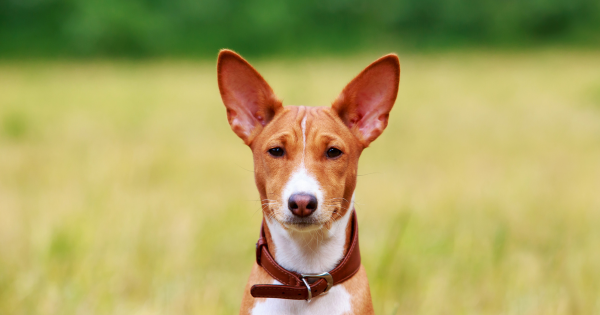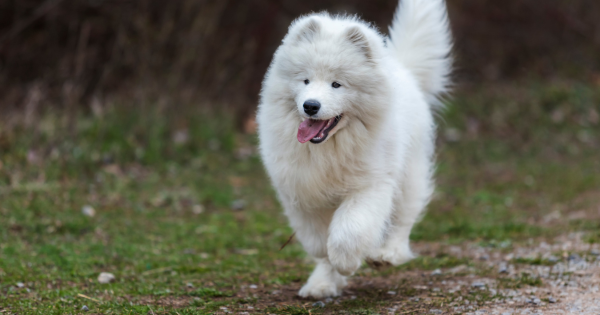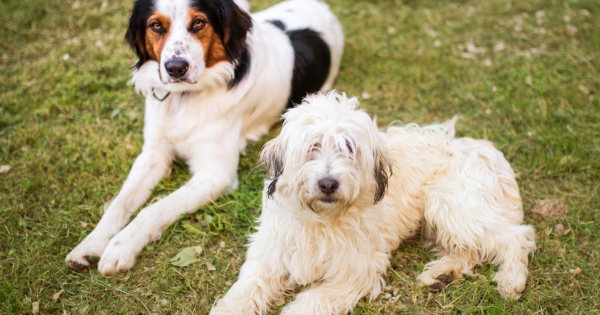Choosing the right dog breed for your home is a significant decision that can greatly impact your lifestyle and the well-being of your new furry friend. Dogs come in various shapes, sizes, and temperaments, making it crucial to select a breed that fits well with your living environment, activity level, and personal preferences. Whether you’re a first-time dog owner or looking to add another pet to your family, this comprehensive guide will help you make an informed decision when choosing the right dog breed for your home.

1. Assess Your Living Space
Your living environment plays a crucial role in determining the type of dog breed that will thrive in your home. Whether you live in a small apartment or a spacious house with a backyard, it’s important to consider the size and energy level of the breed you choose.
- Apartment Living: If you live in an apartment or a home with limited outdoor space, smaller dog breeds or those with lower energy levels are more suitable. Breeds like French Bulldogs, Cavalier King Charles Spaniels, or Pugs are known for their adaptability to smaller living spaces. These dogs require less room to roam and are often content with moderate exercise.
- Houses with Yards: If you have a house with a large backyard, you can consider more active and larger breeds. Breeds like Labrador Retrievers, Border Collies, or Golden Retrievers are ideal for homes with outdoor space where they can run and play. These dogs typically need plenty of exercise and mental stimulation to stay happy and healthy.
- Climate Considerations: Take the local climate into account as well. Some dog breeds, such as Huskies or Saint Bernards, thrive in colder environments, while breeds like Chihuahuas or Greyhounds prefer warmer climates. Make sure your home is equipped to provide comfort based on your region’s weather conditions.

2. Consider Your Lifestyle and Activity Level
Your lifestyle and activity level are crucial factors when choosing the right dog breed. Dogs require different levels of exercise and mental stimulation, so selecting a breed that matches your energy level is essential for both your and your dog’s happiness.
- Active Lifestyles: If you’re an active person who enjoys outdoor activities like hiking, running, or playing sports, you’ll want a dog that can keep up with your lifestyle. Breeds like Australian Shepherds, German Shepherds, and Dalmatians are known for their high energy levels and love for physical activities. These dogs excel in environments where they can get plenty of exercise and engage in activities like agility training or frisbee.
- Low-Energy Breeds: If you prefer a more relaxed lifestyle, consider breeds with lower energy levels. Basset Hounds, Shih Tzus, and Bulldogs are generally more laid-back and enjoy lounging around the house. These breeds still need regular walks and playtime but won’t require as much physical activity as more energetic breeds.
- Work Schedule: If you work long hours or travel frequently, it’s important to choose a breed that can handle being alone for extended periods. Some dogs, like Greyhounds or Shar Peis, are more independent and can tolerate solitude better than breeds with high social needs like Poodles or Bichon Frises. However, all dogs need companionship, so be prepared to arrange for a dog walker or pet sitter if your schedule requires long absences.
3. Evaluate Temperament and Personality
Different dog breeds have varying temperaments, so it’s essential to choose one that aligns with your personality and family dynamic. Some breeds are known for being outgoing and playful, while others are more reserved or protective.
- Family-Friendly Breeds: If you have children or other pets, choosing a breed known for its friendly and gentle nature is important. Golden Retrievers, Labradors, and Beagles are often considered excellent family dogs because of their patience and affectionate behavior. These breeds typically get along well with children and other animals.
- Guard Dogs and Protective Breeds: If you’re looking for a dog that can provide security and protection, breeds like German Shepherds, Rottweilers, and Dobermans are known for their loyalty and protective instincts. However, these breeds require proper training and socialization to ensure they are well-behaved and not overly aggressive.
- Independent vs. Social Dogs: Some dog breeds, like Chihuahuas and Dachshunds, are known for their independent nature and may prefer less social interaction, while others, like Golden Retrievers and Boxers, are highly social and thrive on human companionship. Consider how much time you can devote to your dog’s social needs before choosing a breed.

4. Grooming and Maintenance Needs
Grooming is an essential aspect of dog ownership, and different breeds have different grooming requirements. Some breeds require frequent brushing, bathing, and trimming, while others are relatively low-maintenance.
- High-Maintenance Breeds: Breeds with long or curly coats, like Poodles, Shih Tzus, or Afghan Hounds, require regular grooming to prevent matting and tangling. These dogs may need professional grooming every few weeks, in addition to daily brushing at home. Be prepared to invest time and money into maintaining their coat.
- Low-Maintenance Breeds: If you prefer a dog with minimal grooming needs, consider breeds with short coats like Beagles, Boxers, or Dobermans. These dogs typically only need occasional brushing and regular baths to keep their coat clean and healthy.
- Shedding: Some dog breeds, such as Golden Retrievers and Huskies, are known to shed heavily, while others, like Poodles and Maltese, shed very little. If you have allergies or prefer a cleaner home, look for hypoallergenic or low-shedding breeds.

5. Training and Intelligence
Different dog breeds vary in their trainability and intelligence. If you’re a first-time dog owner or prefer a dog that’s easy to train, selecting a breed known for its intelligence and willingness to learn is crucial.
- Highly Trainable Breeds: Breeds like Border Collies, Poodles, and Labrador Retrievers are known for their intelligence and ease of training. These dogs are quick learners and enjoy participating in obedience training and advanced tasks like agility or search and rescue.
- Stubborn Breeds: Some breeds, like Bulldogs, Basset Hounds, and Afghan Hounds, can be more independent and stubborn, making training a bit more challenging. These dogs may require more patience and consistency during training sessions.
- First-Time Owners: If you’re new to dog ownership, breeds like Golden Retrievers, Poodles, or Cocker Spaniels are known for their gentle temperament and easy trainability, making them a great choice for beginners.

6. Health Considerations and Lifespan
When choosing a dog breed, it’s essential to consider the breed’s typical health concerns and average lifespan. Some breeds are prone to genetic health issues, which can lead to costly vet bills and emotional stress.
- Common Health Issues: Certain breeds are more susceptible to specific health problems. For example, large breeds like Great Danes and Mastiffs are prone to hip dysplasia, while small breeds like Dachshunds are at risk for spinal problems. Researching the common health issues of a breed can help you prepare for potential medical needs and expenses.
- Lifespan: Smaller dog breeds generally have longer lifespans than larger breeds. For example, Chihuahuas and Toy Poodles can live up to 15 years or more, while larger breeds like Great Danes and Saint Bernards may have shorter lifespans of 7-10 years. Consider the commitment involved in caring for a dog for its entire life and whether you’re prepared for the time and financial responsibilities that come with it.

7. Adoption vs. Breeder: Where to Get Your Dog
Once you’ve decided on the breed that’s right for you, the next step is determining where to get your new dog. Adopting from a shelter or purchasing from a reputable breeder are two common options.
- Adoption: Adopting a dog from a shelter or rescue organization can be a rewarding experience. Many mixed breeds make wonderful pets and often have fewer genetic health issues than purebred dogs. Shelters also have breed-specific rescues, where you can find purebred dogs in need of homes. Adoption is often more affordable than buying from a breeder and helps provide a home for a dog in need.
- Breeders: If you’re set on a specific breed and want to ensure its lineage, purchasing from a reputable breeder is another option. Research breeders carefully to ensure they prioritize the health and well-being of their dogs. Avoid puppy mills and backyard breeders, as they often prioritize profit over the health and care of the animals.

Choosing the right dog breed for your home is a deeply personal decision that requires careful consideration of various factors, including your living space, lifestyle, temperament preferences, and grooming requirements. By taking the time to evaluate these elements, you can find a dog that fits seamlessly into your life and ensures a happy and fulfilling relationship for years to come. Whether you opt for a small, low-energy breed or a large, active companion, the key is to select a dog that matches your unique circumstances and needs, ensuring both you and your new canine friend live harmoniously together.
